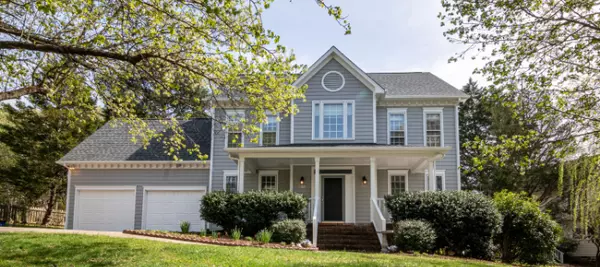A Quick Look At The Mechanics Of The Real Estate Market
A Quick Look At The Mechanics Of The Real Estate Market

What is the housing market?
The housing market is a market where people can buy, sell, or rent houses and other types of dwellings. It is made up of buyers, sellers, landlords, and tenants. The housing market is also known as the real estate market.
The housing market is a very important part of the economy. It helps to create jobs and stimulate economic growth. The housing market also helps to increase the amount of money that people have to spend.
There are two main types of housing markets: the rental market and the sales market.
The rental market is when people rent houses or apartments from landlords. The sales market is when people buy houses or apartments from sellers.
The housing market can be divided into four different parts: the primary market, the secondary market, the tertiary market, and the quaternary market.
The primary market is when people first buy or rent houses. The secondary market is when people sell their houses and move away. The tertiary market is when people rent or buy rooms from other people in order to live somewhere cheaper, such as students renting a room from someone who lives nearby. The quaternary market is when groups of people buy houses together.
What are the different types of housing?
There are three main types of housing: owner-occupied housing, rental housing, and social housing.
Owner-occupied Housing
Owner-occupied housing is when the house or apartment is owned by the person who lives in it. Rental housing is when the house or apartment is rented out by a landlord to someone else. Social housing is when the government provides affordable housing for people who can't afford to buy or rent a house or apartment.
Rental Housing

If you need a house to live in, but don't want to buy one, then you might rent one. There are different kinds of rental housing, and each has its own benefits and drawbacks.
The first kind of rental housing is an apartment. An apartment is a small house that usually has one or two bedrooms and a kitchenette. Apartments are usually in multi-unit buildings, which means that there are other apartments in the same building. This can be good or bad, depending on what you are looking for. It can be good because it means that there is always someone around to help you if you need it. It can be bad because it means that there is always someone around to hear your arguments!
The second kind of rental housing is a townhouse. A townhouse is a house that is divided into two or more parts. Each part is called a "unit." Townhouses are usually in multi-unit buildings, which means that there are other townhouses in the same building. This can be good or bad, depending on what you are looking for. It can be good because it means that there is always someone around to help you if you need it. It can be bad because it means that there is always someone around to hear your arguments!
Social Housing
In Canada, social housing refers to the provision of assistance to individuals with less money. People who can't afford a place to live are given aid in the form of subsidized housing. There are numerous initiatives in place to assist these individuals to help them get back on their feet. These places typically use Rent Geared to Income where their rent and other fees are based on the income of the tenant. People need to fulfill certain criteria to be able to live in this type of housing.
What are the different types of dwellings?

The different types of dwellings in the housing market include houses, apartments, townhouses, condos, and mobile homes.
- Houses are stand-alone structures that are used for living purposes.
- Apartments are multi-unit structures where each unit is rented out to a separate family or individual.
- Townhouses contain two floors and can be attached side by side to similarly-sized townhomes on either side of the street, but they do not share any common walls with one another.
- Condos are multi-unit structures that share walls and property ownership with all other condo owners in a building, but condos can also be detached single-family homes as well.
- Mobile homes are typically manufactured to be transported from place to place.
How does demand affect the housing market?
Demand is defined as the number of buyers in a market who are actively looking for and considering purchasing property. The greater the demand, the more pressure there is on supply. When supply and demand are equal, prices remain steady.
But when demand increases and supply does not, prices go up until they meet again at an equilibrium point. Lower demand, as you can imagine can lead to a lower price for new listings.
The demand side of the market also affects prices in two other ways:
- Price expectations. Re-sale buyers (those buying a home to live in or retire in) tend to comparison shop and base their purchase on price and features. The larger the pool of buyers who are looking for a property similar to one being sold, the higher the expected price.
- Time on market. The longer a home spends on the market, the lower its sale price will be. As time goes on and a property remains unsold, it becomes less desirable to buyers. The longer a home is on the market, the more likely it is that the seller will have to lower its price.
- The bottom line: Demand affects prices in both the short and long run. When demand outpaces supply, prices go up; when demand decreases, prices may drop.
Now that we know how demand affects prices in the market, let's take a look at what is driving this demand.
There are three main factors: population growth, job growth, and low interest rates.
Population Growth
Population growth is the result of both natural population increase (more births than deaths) and immigration. As the population grows, so does demand for housing.
Job Growth
The number of jobs available and the wages they pay also influence the demand for housing. As more people spend their days at work instead of home, there is a greater likelihood that they will be moving into larger homes in order to accommodate themselves and their families. Additionally, higher-paying jobs can support more people and, thus, increase demand.
Low Interest Rates
Interest rates affect homebuyers in two ways: firstly the number of buyers and secondly the amount they can afford to borrow. While they have dropped recently, so too has homeownership among young first-time buyers.
This may be due to the fact that lenders restricted credit following the housing crisis and, as a result, many people are unable to afford a home given real estate prices. The decrease may have made it possible for some to buy a home, but it is still more difficult than it used to be.
So what does all this mean for interested buyers and sellers?
Increased demand can have a significant impact on property prices, but using this demand to predict future prices is much more complicated.
Rising prices are often followed by slowing home sales as potential buyers become discouraged or find themselves unable to afford a home. This leads to lower prices setting off another cycle of increased demand and eventually higher prices.
The market is constantly in flux and it is difficult to say exactly what will happen in the future. However, it is important to understand how demand affects prices in order to make the most informed decisions possible.
The impact of supply and inventory on the housing market.
Supply and inventory are two of the most important factors that affect housing markets. When there is an oversupply of homes, prices tend to drop, while low inventories tend to drive prices up. Understanding how these two factors work together can help you make more informed decisions when it comes to buying or selling a home.
Supply and inventory in the housing market is determined by three main factors:
- Cost of building: the more expensive it is to build a new home, the less likely developers are to construct new ones if the profit margins are too slim.
- The supply of developable land within city limits is limited by geography or topography. The supply of land just outside cities is higher, but prices are also generally lower there.
- Availability of financing, lenders have tightened credit in the wake of the housing crisis, making it more difficult to get a mortgage for some types of homes.
- The bottom line: Supply and inventory affect the housing market by increasing or decreasing the number of homes available for purchase. When demand outpaces supply, prices go up; when demand decreases, prices may drop.
The two main kinds of real estate markets and what they mean.
What is a seller's market?
A seller's market is a market condition in which the seller has more negotiating power in a transaction than the buyer. Sellers, since there are fewer listings, are typically able to demand more from buyers, and they may also have an easier time selling their product. For buyers, this means a slower pace for their home search.
What is a buyer's market?
A buyer's market is one in which the opposite of the above happens -the buyers have more power than the sellers and less competition. This might be due to excess housing inventory where more properties are available, or prices may simply be more attractive for buyers for other properties. An experienced agent can tell you whether it's time to act fast or wait for there to be even less demand, but waiting too long could also cost you your dream home.
Is it as simple as it seems?
The terms are used regarding real estate because it can create different types of conditions for the market. For example, when there is a lot of housing inventory, it's typically a buyer's market because there are more choices for the buyers and they can afford to be more selective. Conversely, in a seller's market, it may be harder to find a home that meets your needs since there are more people looking to buy, and sellers can typically demand more money.
It's important to note that the terms are relative, and what might be a seller's market in one part of the country may not be in another. It's also important to consider how these conditions might change over time. For example, if there is an increase in housing inventory, that could shift the balance in a market from a seller's market to a buyer's market, or vice versa.
It all depends on what type of condition the real estate market is in when you're buying or selling. If there are fewer homes for sale and there are more buyers, it may be easier to find a home that meets your needs if it's a seller's market. However, you may need to pay more for that home since the seller has more power in the transaction. Conversely, if there are more homes for sale and fewer buyers, it might be a better time to buy, since you'll have more choices and may be able to get a better deal on a home.
However you define a "seller's market" or a "buyer's market", it all comes down to a real estate agent knowing the market conditions in their area, understanding what type of transaction they're working on and being able to advise clients accordingly.
In any given market, there are both buyers' markets and sellers' markets occurring at the same time. In a buyers' market, there is a low demand for buying a house resulting in a surplus of homes on the market. Sellers have less power and may need to reduce their asking price from its list price to attract buyers. In contrast, in a sellers' market, there is high demand for houses resulting in a shortage of homes. This means that there are more buyers competing for the available houses in, thus increasing the demand for buying a home which increases prices. Sellers can increase their asking prices due to the high competition amongst buyers.
Many people decide to purchase or sell a home when they see apparent signs of either a buyer's or sellers' market. It is important to consult with a real estate agent in order to understand what is happening in the local real estate market and how it will affect your buying or selling decisions.
What is a balanced market?

A balanced market is one in which the demand for buying and selling a home is equal. There are no apparent signs of a buyers' or sellers' market. This occurs when there is a healthy mix of buyers and sellers in the market, resulting in neither party has an advantage over the other.
It's important to remember that real estate is local, and what might be a balanced market in one area may not be in another. It's also important to note that this isn't usually a long-term prospect as demand and supply change.
When considering purchasing or selling a home, it is important to consult with a local real estate agent who will be able to advise you on what you need to take into account. They have access to market trend reports and housing market predictions that can tip the scales in your favor in a bidding war and maybe get you a reducing in the asking price.
What are some other factors that influence Canada's housing prices and values?
Many other factors influence Canada's housing prices and values such as location, size, quality of construction, amenities in the area, weather conditions and even a home's proximity to major thoroughfares. It is important to take all these factors into consideration when you are considering buying or selling a house since they have an effect on its value.
Why should we care about what influences Canada's home prices and values?
There are many benefits we get from living in a country with so much real estate diversity. It means that people can find the perfect house to suit their needs and financial situation, and it also has an effect on our economy since there is a wide range of housing available for different income levels.
View All Homes For Sale in Greater Vancouver >>>
About Search Home Listings
SearchHomeListings.ca has simplified the home buying and selling process by giving you superior tools with up-to-the-minute information including active homes for sale, sold homes, market reports, and a home valuation tool! We have a team of success managers on standby to support you with setting up your saved home search and agents ready to take you out on a tour. Tap into our industry experts from inspectors, to contractors to interior designers to provide you with the best prices and service possible. Everyone attached to our website has been rigorously vetted and is made up of caring, knowledgeable professionals that work tirelessly to help you to make your home buying experience as stress-free as possible. Contact us today to see how we can help!
Sites We Follow
Categories
Recent Posts










